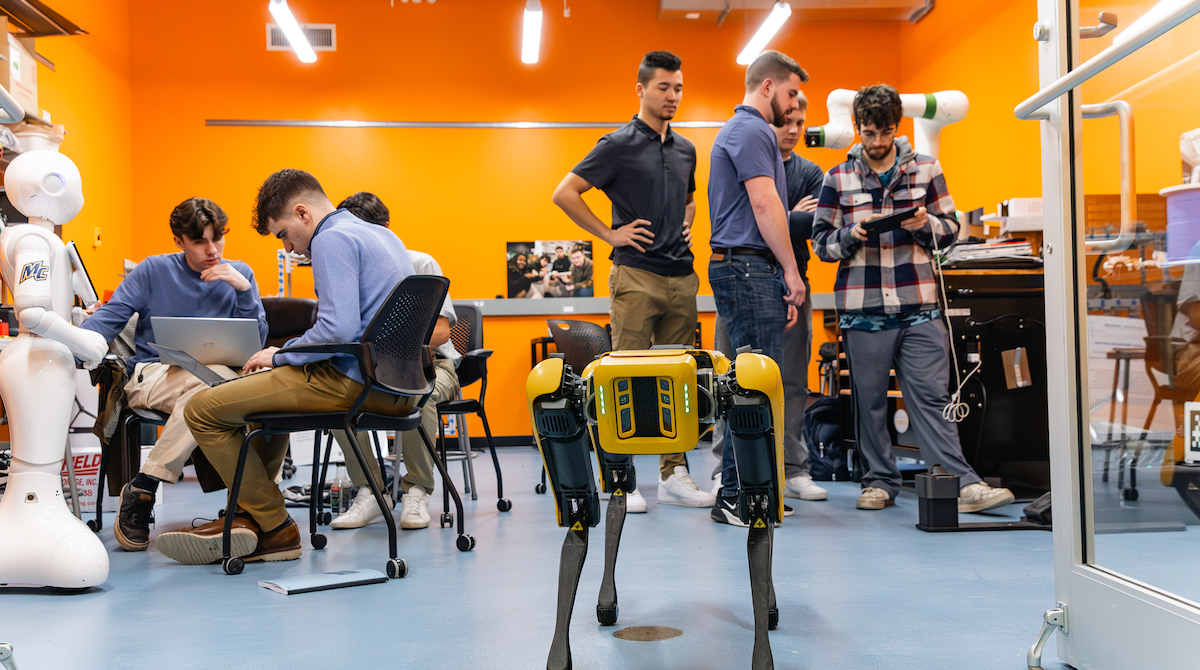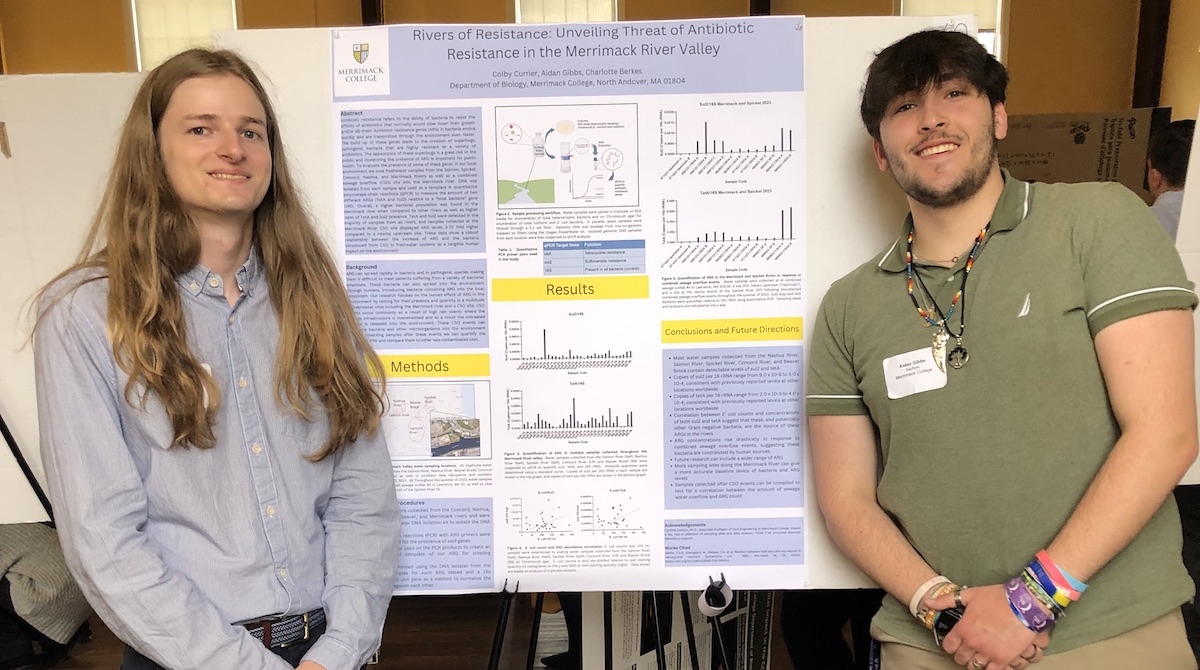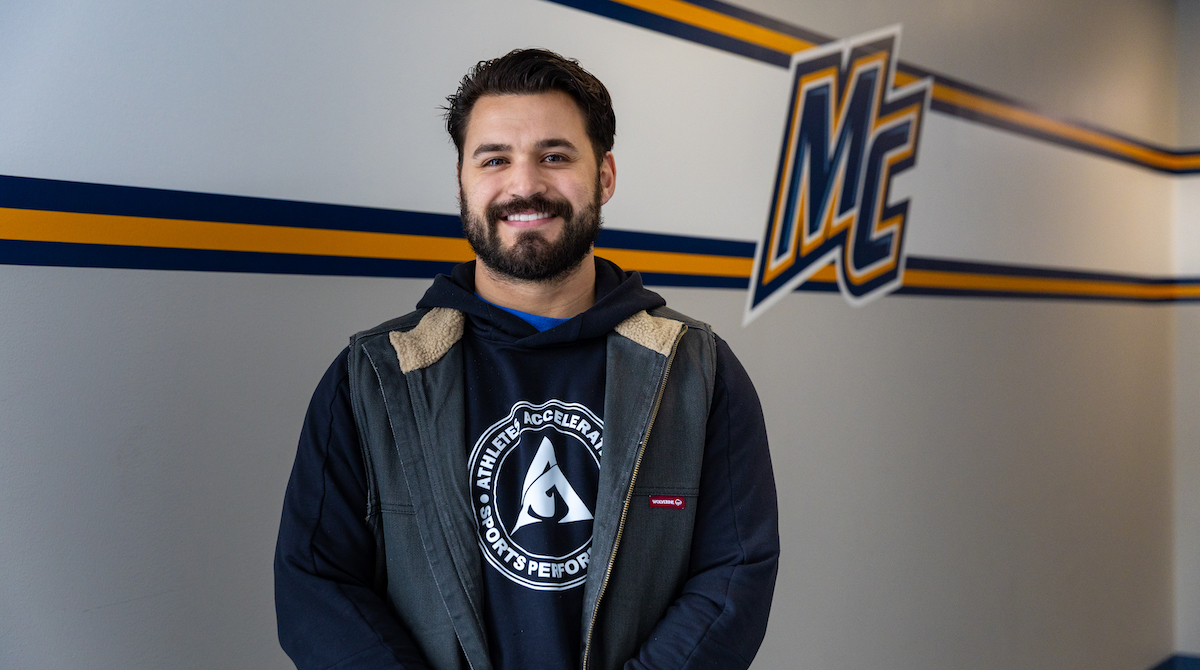The future is now. Merrimack College’s latest research effort features undergraduate students studying the relationships between humans and robots, and how robots can be better utilized in modern society.
Rickey Caldwell, associate professor of mechanical engineering at Merrimack, began the directed study at the beginning of the spring 2024 semester. Currently, 11 students are participating as well as two co-instructors Dr. Nicholas Valente ’19 and Brianna Raphino ‘20
“Really, this is a boot camp to get students ready for graduate school and experience what it’s like to do academic research,” Caldwell explained. “They start out with a literature review – Where do you find the information? What’s a good journal? What’s a bad journal? What are the holes in the literature? Then they go through research – What data do we need? How do we know what we’re measuring is actually what we’re measuring?”
Groups are split evenly between Merrimack’s four robots, which include a Fanuc arm typically found in factories and fulfillment centers; Darwin OP2, a humanoid that can be programmed to play soccer; and Spot, a four-legged agility machine created by Boston Dynamics.
The research project that is furthest along involves Pepper, another humanoid robot designed to interact with humans. By mid-April, Pepper will be brought to Nevins Memorial Library in Methuen, MA to read books to children.
“The study explores the interaction between robots and children and how this interaction affects their relationships with different types of technology, their desire to read more books and their patronage of the library,” said Caldwell.
Trey Tankersley ‘26, an electrical engineering student who is part of the Pepper group, said he joined because of the opportunities it presented him for further education.
“I’ve had an interest in robotics since high school so this was a great opportunity to have a chance at working on robots and gaining new skills and experience in this type of environment,” he said.
Students have since taught Pepper how to read “Harry, The Dirty Dog” by Gene Zion. Their research survey work is now complete and with an institutional review board. The students are also looking for ways to spice up Pepper’s storytelling with animation and visual elements.
“The project is going well,” said team member Nick Tessitore ‘25, a mechanical engineering major. “We have been accepted to an American Society for Engineering Education conference at Fairfield University and we’re getting the stories and other materials prepared for data collection in the coming weeks.”
These directed studies will continue into the fall, with the goal of programming both Pepper and Sport to perform a dance alongside the Merrimack College Dance Team during halftime at an athletics home game. Darwin OP2 will be programmed as an assistive robot, with its first task being folding laundry.
Caldwell hopes the directed study will grow to incorporate undergraduate students studying a variety of disciplines.
“With the robots, you have to actually know a programming language,” he explained. “Then, you have to know a little bit of dynamics and kinematics in order to quickly get the robot to do what you want.”
Directed studies such as Caldwell’s are part of Merrimack’s renewed focus on collegiate research. The college’s goal is to receive enough research grants per year to earn R2 status in the Carnegie Classification.





